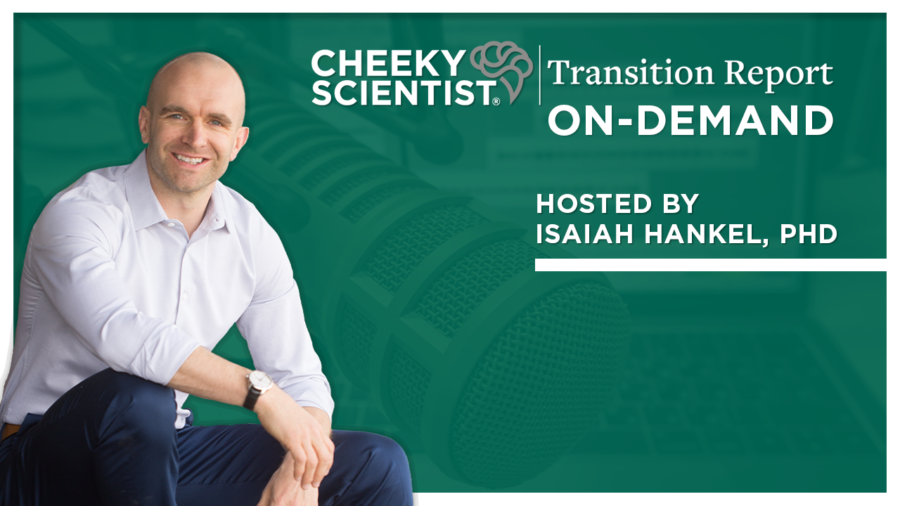Hosted By

Chief Executive Officer Cheeky Scientist

Join Isaiah as he discusses one of the main differences between academia and industry and why you need to adopt an industry mentality to succeed in your job search
Here’s a quick rundown of this week’s episode…
- First, Isaiah explains the differences in timelines between academia and industry and what that means for your job search
- Next, Isaiah explores the best way to research a company so you’re always prepared for an interview
- Finally, Isaiah talks about one of the worse habits PhDs pick in academia and how it can jeopardize your chances of getting the industry job you deserve
From This Week’s Show…
The Difference Between Academia And Industry Values
Industry time is not like academic time. Things move much faster. For instance, new job postings receive their first application within two hundred seconds of being posted.
Things move even faster later in the hiring funnel. You must be ready to say “yes” to a phone screen request at a moment’s notice if your dream employer asks if you’re free to talk about your experiences.
You must be prepared to reply right away to their LinkedIn message requesting more information about your candidacy.
You must be highly responsive with your phone, email, and LinkedIn notifications turned on so you can seize the moment before the employer moves on to the next candidate.
How To Ensure You’re Always Prepared To Talk To Employers
The goal of every step of the interview process is to convince whoever is interviewing you that you are the best candidate for the position and a good fit for the company.
You will find selling yourself during an interview easier if you lay a strong foundational mindset for approaching your interviews. You should research every company to which you apply; that allows you to demonstrate interest and commitment during interviews.
Hiring managers notice when a candidate has done this homework, and it always leaves a good impression. Here are a few questions your research should answer:
- What are the company’s values? What is their mission statement?
- Has the company gone through any recent mergers and/or acquisitions?
- Why do they need to fill your target position?
You should also prepare questions to ask your interviewers. Most importantly, show up to every interview prepared to convince the employer that you are the best person for the job and that their company is at the top of your list.
Why The Bad Habits You Picked In Academia Can Jeopardize Your Transition
As a PhD, whether you know it or not, you’ve picked up some bad habits in academia that hinder your performance in industry interviews. The worst of these habits is avoiding confirmation bias at all costs.
Of course, when it comes to work, especially data and information that can directly or indirectly affect patient lives, scientific funding, etc., you should avoid confirmation bias. But in your job search, you should be as biased as possible toward yourself.
You must do everything you can (short of outright lying) to convince employers you are the best possible candidate for the job. You must find every angle and leverage every turn of phrase that can make you seem, even momentarily, to be the better candidate.
Once you’re hired, you can prove yourself and reassure them you were always the best choice—but you must get hired first. While all PhDs regularly express uncertainty in their work in sharing things like error values and the limitations of the research approaches, there’s no place for this when it comes to pitching yourself as the ideal candidate for an industry role.
If you’re ready to start your transition into industry, you can apply to book a free Transition Call with our founder Isaiah Hankel, PhD or one of our Transition Specialists. Apply to book a Transition Call here.










